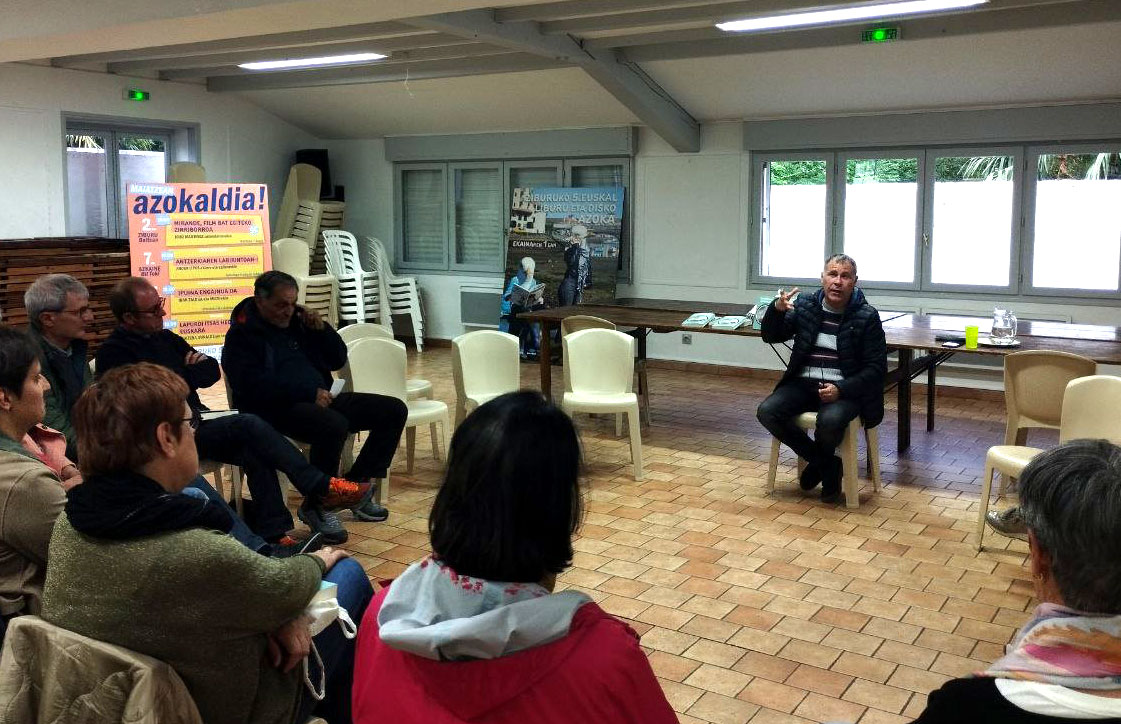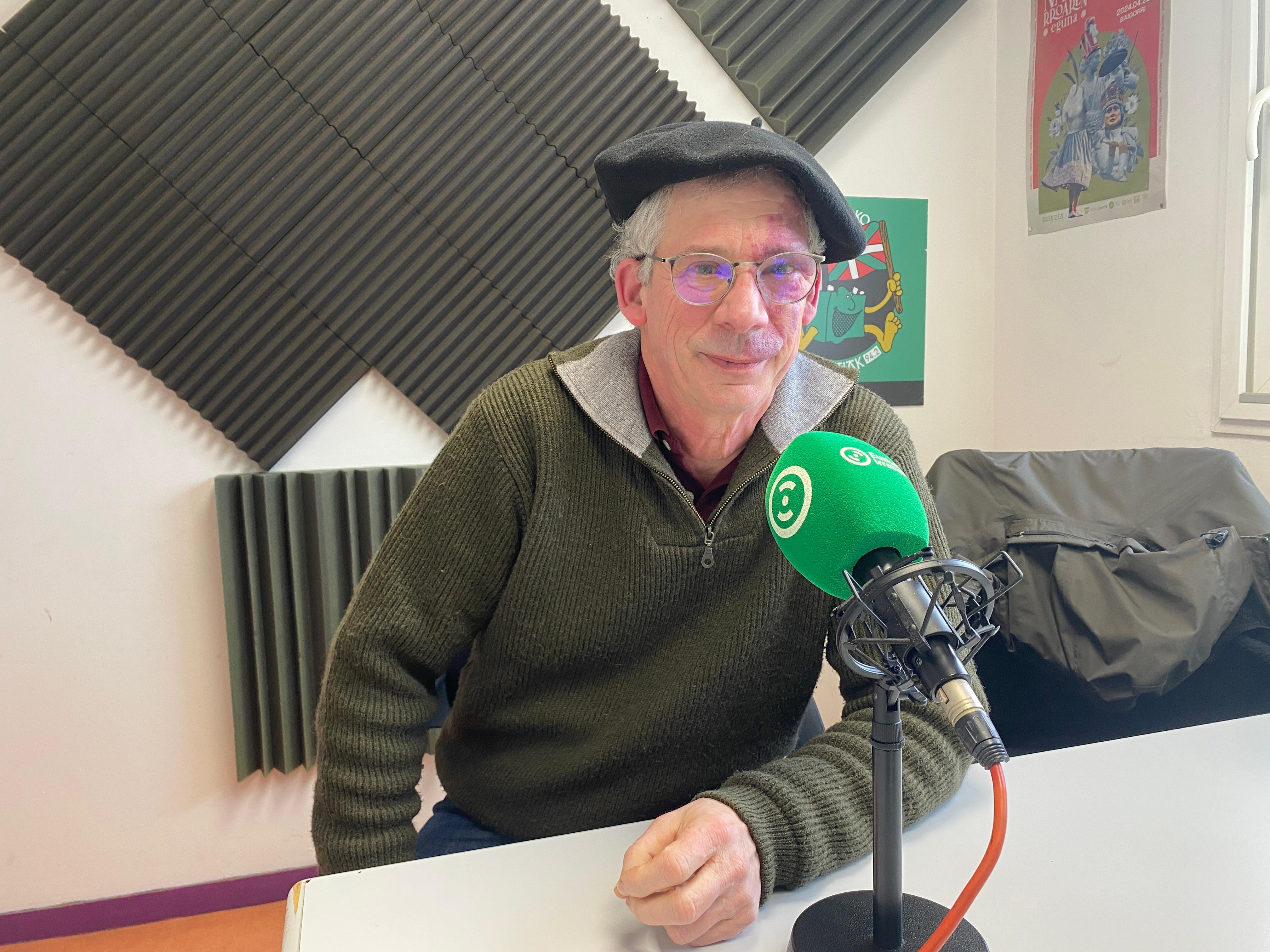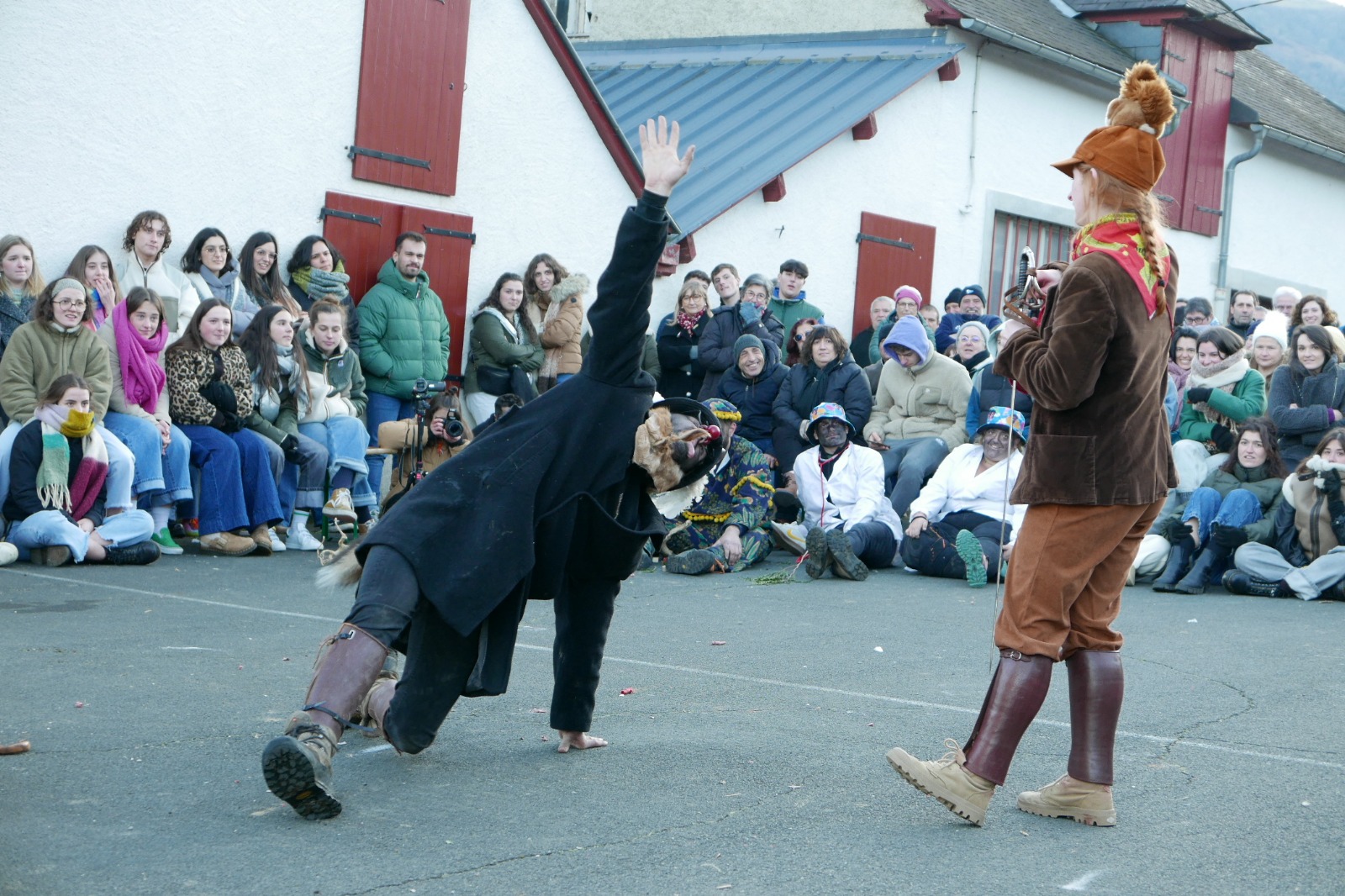“I want to do theater in Iparralde, because I think the codes are understood here”
In Azkain, Ander Lipus has presented a book that has reflected on his artistic trajectory: In the maze of the theatre he also has a second part, “more directed at playwrights”, but as Azkaine’s readers have read the first part, Lipus has limited his intervention. He spoke long and hard about dark Tuesdays, in a circle with the public, in the Bil Toki space. The talk is part of the programme of the Preliminary Fair of the Fair of Ziburu, to be held on 1 June.

“You are brave, unfortunately the Basque formula + theatre has no literary precedent in editorial production,” said Ander Lipus just took the floor. That's when you hear the first small laughs, which have been growing and increasing by about an hour and a half. To delve into the subject, he has touched the target full: “Bertsolaris have eleven Bertsolaris books, partly I’ve had it at the base. But it is very difficult to write about theatre, if not from experience.” The same has been done in the book, reporting the experiences of 50 years of progress, with special emphasis on places, years and names and surnames, since the roads of the past have allowed it to open the windows of the future. In his book he has taken a look at memory.
As noted, “there is nothing written about the theatre in Euskera”. There is a writing about libertism, Lipus also talks about the work of Patxi Urkizu, which have also been published in the library... “but nothing”. Something that Lipus has missed from a very young age is one of the ideas that surrounds book I in the maze of theater. At the age of 18 he went to Madrid to study theatre and his father gave him the book An actor from Constantin Stanislavski prepares. It was curious that there was a book about theater. Since then, he has been reading a lot of plays from the “great masters” of the theater.
Before going to Madrid, I confess that I knew little about theatre. I wanted to do theater, but I didn't even know what theater was. In his childhood, in Markina-Xemein, he started skipping something out with the theater, he says that like all children, "The child is very present in the theater, he wants to be a pirate, an anillar, to be another -- it's theater." Lipus recites a quote from Andu Lertxundi that picks up his book on page 33: “Children’s desire to play in shops, doctors, kitchens or parents is known. In Murelaga it is said that this game is called life and a better name has never been invented to define the essence of the theater.”
He was a child when Franco died, and the popular theatres, even more so in Basque, were very oppressed in these times. The theater did not reach its people, but acted upon acting, and tried to organize a theater play by Kontxu Odriozola and so many others, went to the town hall: “The councilor, a tough answer. Antzerki, nahiko antzerki dut nire etxean.” Theater wasn't worth it to politicians, or it's not worth it to today. This is what Lipus says in his interview on Susa's website, the week that the centenary of his birth is celebrated, Nestor Basterretxea said the same in ARGIA, in the interview held twelve years ago by Subai Colina.
Road to Madrid
When he was very young he started in Etxebarri in a theater group. He performed his first monologue at the same time, called Reflections on the Absurd, and thus demonstrated to others that he was able to memorize the text for 45 minutes. He opened the doors to Madrid and opened great illusions: “My intention was then to go to London and from there to America to be the best playwright in the world.”
When the American illusions that were frustrated reached the turn of 25 years, just when I was stabilized in Madrid in his work: “It was a good stage for me, I studied a lot, I opened many doors, it gave me many good things, but I saw that my way ended there, that I had to return to Euskal Herria, who wanted to do theater in Basque. (...) I once heard Titika Rekalt, that she lost virginity when she went to Paris, because I lived in Madrid.”
He returned to Markina-Xemein, but did not look for a place until he went to Bilbao, which was in the post-industrial phase. Lipus states that Performance and techno music moved in a “punkian” era when the Basque country had no place in a Bilbao and the alternative spaces of the young had less space. In this context came the creation of the Mina space or the company Antzerki. “I saw clearly that I returned to Euskal Herria at the time when we made so many assemblies, in this country we know how to do, what we know how to do.”
Bilbao to Berriz
With the company Trama, in the small towns of Bizkaia they showed the popular theater with little subsidy from the Diputación, with a lot of militancy, and gave the end of the Bilbao stage to install it in Berriz. “There I started looking more and more at Euskal Herria, because I felt more like diving into what transmission is,” he said.
At this stage he met Iñaki Etxeleku, Antton Luku, Daniel Landart and others. “In the South I was asked questions about the theater that had never been done to me!” said Lipus of laughter. It was clear that in the North there was a new understanding of the popular theater, and thanks to the aforementioned members and the Fusch brothers who met on that road, the Bidasoa River began to cross more and more. “I want to do theater in Iparralde because I think there are codes here and you understand it.”
For all this, and for the moments lived during these years above the Bidasoa, which says they are “memorable”, it has been special to present the book Lipusi in Azkain.
Working conditions of body builders
In the book they have something to say about the working situation and Lipus has put them on the table at one point or another. He gives an example: “The person who cuts my hair, like those of Axut and Artedrama, goes to Zaballa prison to serve the prisoners. My hairdresser charges to haircut the prisoners and we give free theater classes.”
He acknowledges that sometimes he wants to get rid of everything, because it is often said that body builders are “successful”, but he says clearly that his trade has nothing to do with what has been said. In Lipus’s words, everything he does makes sense only when there is “joy” and “celebration”. “But of course, for all this to work, it takes public, and I’m noticing it’s shrinking in recent years.”
ERREALITATEAREN HARRIBITXIAK
Nork: Josu Iriarte, Nerea Lizarralde, Jare Torralba eta Amets Larralde. Mikel Martinezek zuzenduta eta Jokin Oregiren testuetatik abiatuta.
Noiz: otsailaren 21ean.
Non: Bilboko 7katu... [+]
Vagina Shadow(iko)
Group: The Mud Flowers.
The actors: Araitz Katarain, Janire Arrizabalaga and Izaro Bilbao.
Directed by: by Iraitz Lizarraga.
When: February 2nd.
In which: In the Usurbil Fire Room.
Duela hemeretzi urte berpiztu zen libertimenduen usadioa Donibane Garazin. Antton Lukuk abiatu zuen mugimendu hori, eta bi hamarkadetan, Ipar Euskal Herriko herri desberdinetara ez ezik, Hegoaldera ere hedatu da.
Arizona
Actors: Justin Garfield and Jon Plazaola...
WHEN: January 26th.
IN WHICH: The New Culture Center. In the square.
-------------------------------------------
The couple Margaret (Aitziber Garmendia) and George (Jon Plazaola) leave Idaho to guard the border between... [+]
AMAK
Company: Txalo teatroa.
Created by:Elena Díaz.
Address: Begoña Bilbao.
Actors: Finally, Ibon Gaztañazpi will account for the details of Intza Alkain, Tania Fornieles, Oihana Maritorena and IRAITZ Lizarraga.
When: 10 January.
Where: Auditorio Itsas Etxea... [+]
Basabürüako ibar eskuineko gazteek lehen maskarada arrakastatsua eman dute igandean, Lakarrin.













